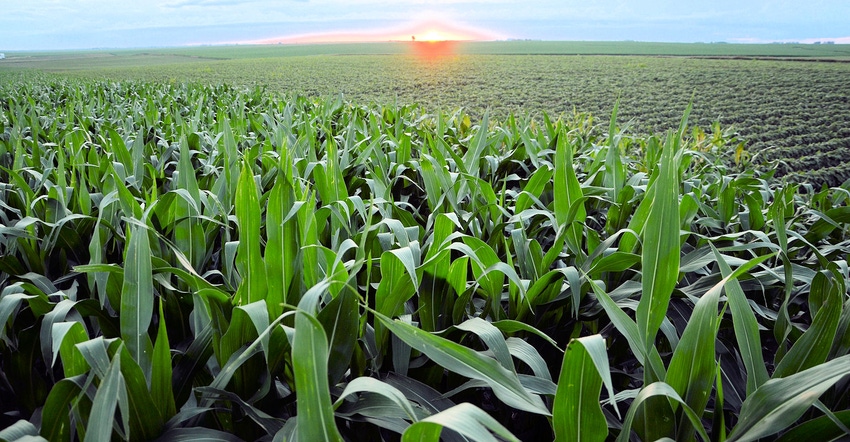May 15, 2018

Today's corn plant is a modern marvel that has seen yield improvements steadily for several decades, yet there are still parts of the plant's inner processes that could be better. Plant breeders know that there are functions in a plant that are less efficient than they could be; but what would happen if you could alter those basic processes?
Two companies - Beck's Hybrids and Benson Hill Biosystems - announced Today (May 15) that they're working to bring to market the first photosynthetic efficiency trait, which will bring higher yields to corn. "In our work we're seeing yield increases in the high single digits percentage wise," said Matthew Crisp, CEO, Benson Hill.
Crisp explains that the trait helps the plant fix more carbon from the atmosphere than corn typically does. He noted that the metabolism of corn is relatively inefficient since it is basically what nature originally gave the plant. Nature doesn't coddle plants, but a monoculture environment does provide a solid growth environment for the corn that's different than the environment where the plant originally evolved. "This metabolic system doesn't tend to have an optimal efficiency for monocultures where the crop is actually grown," Crisp said.
The key was to work on ways to tweak primary plant metabolism, which could provide greater plant efficiency and higher yield. "It's taken years of development and testing to be confident in our results," Crisp said. Benson Hill developed a pipeline of trait product candidates that improve crop photosynthetic efficiency, one of which has demonstrated significant yield increases in hybrid corn across three years of field trials in a broad range of environments and genetic backgrounds.
The biotech trait, which involves bringing genes from another plant into corn to boost metabolism, will undergo regulatory review by USDA and will be submitted to FDA. USDA's release of the crop is expected in 2021, FDA could take longer. "We want to be sure that we're clearing this in the best way possible," Crisp said.
And when the trait is approved, chances are Beck's will aim to have it start in the female parent inbred. "Not only does that increase hybrid yield at the end of the day," Crisp said. "But it also offers a cost advantage because it would boost production from those female inbred plants."
Kevin Cavanaugh, director of research, Beck's, explained that the two companies "fit together like a glove" on the technology. "We have experience in germplasm, field testing and trait introgression and they have technology experience," he said.
As part of the agreement, Beck's will have access to the new trait but both companies see an opportunity to broadly license the technology to other seed corn companies. "We are looking to out-license this technology," Cavanaugh said. "Beck's is all about giving the farmer choice and we think this technology will work well with the defensive trait packages available from the larger players in the market. This is a win-win situation."
Benson Hill Biosystems has developed an extensive program called CropOS that uses data analysis and cloud computing to identify genes that may have value in a specific application. That work is basic research, but Benson Hill then partners with others to create practical research opportunities and eventually commercial products that will come to market. "When we started Benson Hill, we envisioned that the intersection of the disciplines known as cloud biology could help address major challenges like improving photosynthesis," Crisp said.
This step-change in yield potential is the kind of advancement in crop production farmers need to keep up with growing demand in the future.
About the Author(s)
You May Also Like






